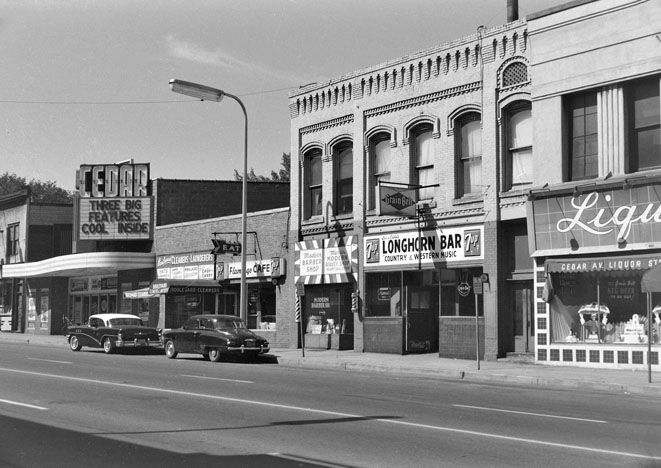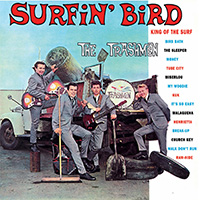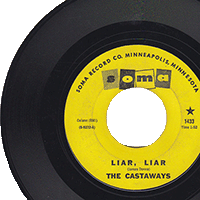Lee and Eddie’s
412 Cedar Ave.
Minneapolis
Lee and Eddie’s Longhorn Bar was located at 412 Cedar Ave. on the West Bank. This is not to be confused with the other Longhorn Bar at 14 South Fifth Street in Minneapolis.
There were a lot of different bars in this space over the years, and I’m sure I don’t have them all. Some of them sound very intriguing!
THE BUILDING
The 33′ by 100′ two story brick building was built in 1886-1887. In typical style, it had two storefronts on the first floor and apartments on the second floor. The storefronts were numbered 412 and 414 Cedar Ave.
In 1895, 412 was occupied by the Rood and Erickson clothing store.
In 1905 the building was sold to the Enger Bros. Undertakers and Embalmers for $4,500. 412 was used as their mortuary until April 1947.
Permit cards show other uses, which must have been in 414:
- Pool hall, 1934
- Cafe, 1934-1935
- Liquor store, 1937
- Tavern, 1937
- Cafe, 1938
LEE AND EDDIE’S
Despite the name Longhorn on the photo below, in newspaper reports, this bar was almost always just referred to as just Lee and Eddie’s. The first evidence of Lee and Eddie’s was a news report dated December 13, 1954, when a bartender was arrested and accused of selling 3.2 beer to two underage kids. He was fined $100.
Leave it to entertainment columnist Will Jones to give us a most amusing inside look at Lee and Eddie’s before it became a Country bar. This is long but worth it! (Minneapolis Tribune, October 15, 1958)
The Beat Beat: Lee and Eddie’s, a beatnik-type 3.2 hangout on Cedar avenue, now reserves Monday night as blabbermouth night for anybody who wants to get up and sound off on anything.
The man behind blabbermouth night is Lyle Tollefson, originally a Minneapolitan, but late of San Francisco, who descibes himself as a practicing member of the Beat generation and authority thereon. The conducted similar sessions in cellars in the North Beach section of San Francisco, he said.
Among his beat credits, Tollefson list himself as a member of the San Francisco committee that organized a Beatnik Tour of the Bourgeois Wastelands. The SF beatniks hired Grayline buses for the tour. Included were such events as poetry readins from the steps of the St. Francis hotel and a symbolic transference of bagels between the Co-Existence Bagel Shop, a beatnik establishment, and one of SF’s fancier bourgeois delicatessens.
On April 5, 1960, the bar’s 3.2 beer license was in jeopardy, although the article did not say why. The license was held by LeRoy Higgins.

JAY’S BAR
The proprietor of Jay’s Bar was Gerald B. Flavin, who voluntarily turned in his liquor license when the Minneapolis City Council licenses committee recommended revocation. Flavin allegedly had financial ties with a pinball machine distributor, Walter Witt. Witt had loaned $1,000 to Flavin for the privilege of placing two machines in Flavin’s bar. Witt testified that this was a common practice that allowed distributors to help finance liquor and beer outlets in exchange for rights to place their pinball machines. The matter was put under investigation.
Meanwhile, Flavin was awaiting trial on a charge of receiving stolen property: two outboard motors, part of a group of 29 stolen motors. (Minneapolis Tribune, August 10, 1961)
THE SOUL OWL
This was the home of a group called The Poverty Players, perhaps similar to Dudley Riggs? A note dated January 28, 1962, said that the cast for that night included Jerry Nagle, Carole Sholander, Diane Bird, and Ivan Dusek. Also on the bill was jazz by the Jades. Reading about the Jades on minniepaulmusic.com, it doesn’t really appear that the Jades were exactly a jazz group, but I didn’t listen to the interview.
The next notice, dated February 4, 1962, called the place the Sour Owl – one or the other must have been a typo! The Poverty Players were again on the bill, taking on the topic of sin and censorship in the movies. Shows were at 10 pm and midnight, again with jazz by the Jades in between.
BAMBOO CLUB
One sorry but tantalizing classified published over three days in September 1962 tells us about this far out club:
Entertainment Fri., Sat., Sun. Jazzettes featuring Barry Lynch on trumpet. Coolest music in town.
SID’S 412 BAR
Sid was Sid Ackerman, and he owned his bar in August 1967. This information was revealed in an article about one of his barmaids (and his maid at home) who was writing the Great American Novel.
FIRE AND DEMOLITION
Fire destroyed the building on June 5, 1968, causing $50,000 in damage. A bar (Sid’s?) and a beauty shop were on the first floor. The second floor apartments were unoccupied.
EDNA’S PARK/EDNA MINI-PARK
Some news reports gave 412 Cedar Ave. as the address of Edna’s Park. This began in about July 1970 until about December 1973. Other descriptions of the park were:
- The Sixth Ward Playground
- Next to the Cedar Theater
- A half lot next to Edna’s Cafeteria


